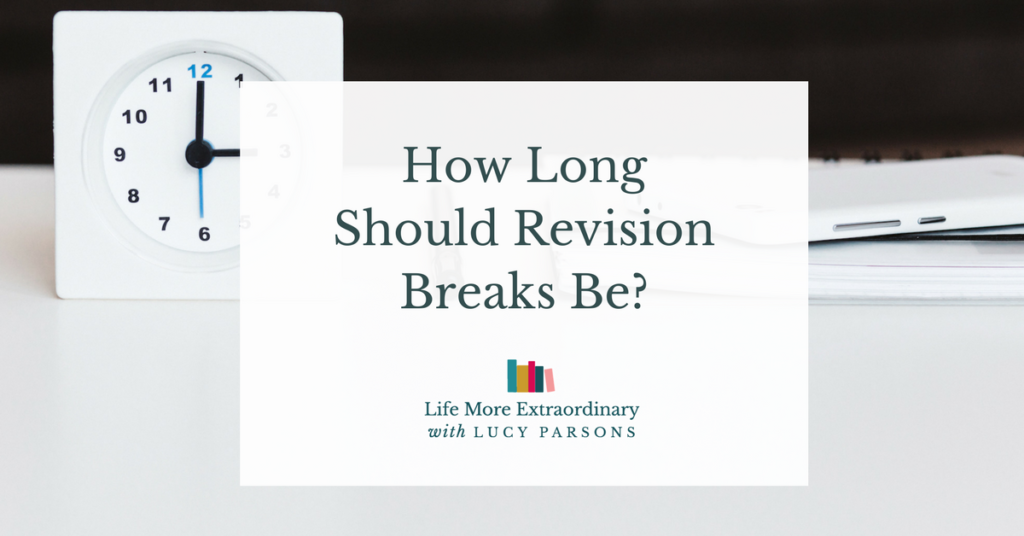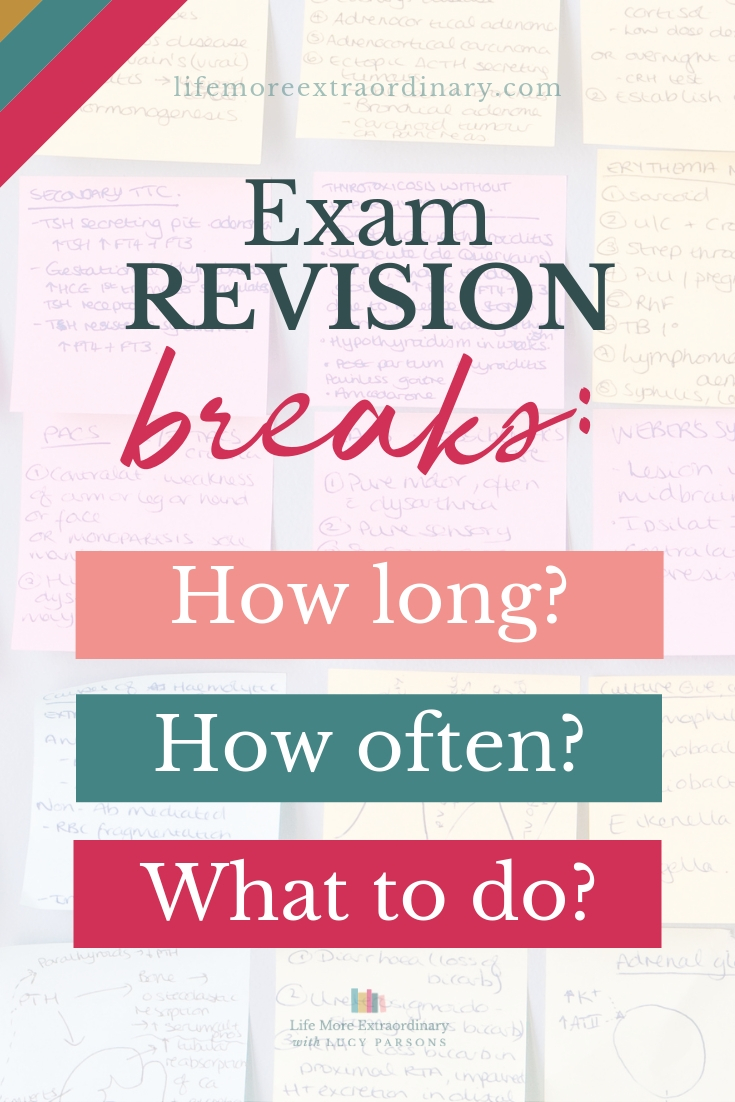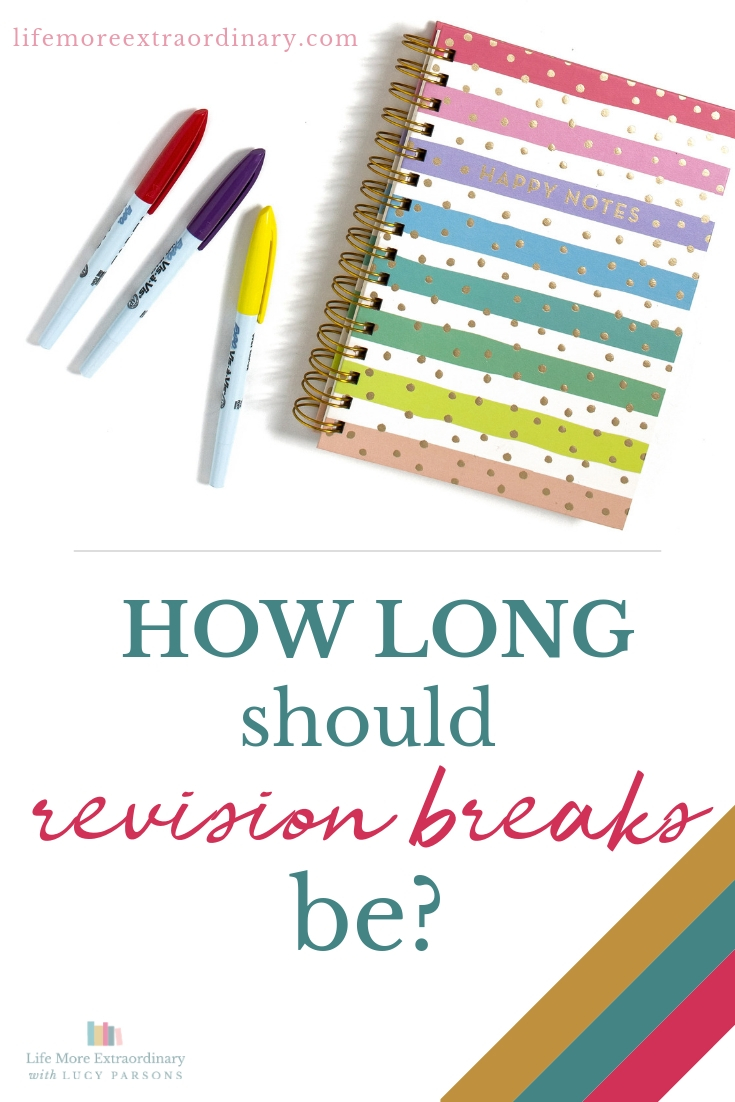How long should revision breaks be?
 If you're revising properly you'll be taking regular revision breaks that are in proportion to the amount of time you've already spent revising that day.
If you're revising properly you'll be taking regular revision breaks that are in proportion to the amount of time you've already spent revising that day.
In this post I'm going to help you to work out how long your revision breaks should be. I'm also going to explain why you should use the pomodoro technique with caution…
How long should revision breaks be?
In the introduction I said that revision breaks should be in proportion to the amount of time that you've already spent revising. Below, I'll give you an idea of what that means:
- If you've been revising for less than 20 minutes your break should be 2 minutes or less
- 20-30 minutes – 5 minutes break
- 30-60 minutes – 5-10 minutes
- If you've done a total of 3 or more hours of revision in one day you can award yourself a 45-60 minute break
However, these are just guidelines. You need to listen to your body and do what it needs (whilst still studying hard enough to reach your goals). More about this below…
How do you know when you need a break?
There are two ways to work out when you need a break.
Method 1 – When you get tired
When you're revising you should be very aware of how well you're learning and how well information is going in. The success of your revision can be down to the learning techniques you're using (I talk more about this in chapter 8 of my book The Ten Step Guide to Acing Every Exam You Ever Take. Luckily for you, I give away a free extract of this chapter. You can get it here.)
However, it can also be down to how tired you are. I've often found myself nearing the end of an hour long study session and discovering that my revision just isn't going in. It's not because I'm using the wrong revision techniques for me, but because my brain has reached saturation point and needs a rest.
Your job is to listen to these signals and take a break when your brain is telling you that it needs it.
Method 2 – Learn your rhythms
If you keep listening to your body using method 1 you'll start to see patterns in how long you're able to revise for before you need a break. You might find that this length of time changes according to the time of day (for example, you can study for 60 minutes in a stretch in the morning but in the afternoon it goes down to 25). It might change as well according to where you're at in exam season. You'll probably be really tired by the end of the season and need more frequent breaks.
Once you know your own patterns you can anticipate when you'll need a break and time your study sessions to be just slightly shorter than your maximum revision time. That way your brain will always be at it's best. It's always a good idea to plan your revision breaks into your revision timetable if you can.
Should you use the pomodoro technique?
A lot of study and productivity advice centres around the pomodoro technique. The basic principle of this technique is that you focus for 25 minutes then take a 5-minute break.
I really like the principle of the pomodoro technique. However, I think you need to work with your own natural rhythms and tolerances. I could always study for 55-60 minutes without a break. Why should I have stopped after 25 minutes if I didn't need to?
My approach is to use timers (for both breaks and revision sessions) but to use them in accordance with your own rhythms. Being mindful of your own body's and brain's needs is going to lead to much greater success in all aspects of your life than just slavishly following one technique.
Of course – if the pomodoro technique is perfect for you, then follow it!
What should you do on your revision breaks?
There are a whole range of things you can do on your revision breaks to improve the quality of your learning when you get back to the books. Getting active is one of the best things you can possibly do. This blog post has 30 active revision break ideas for you to use. But you might also like ideas about what to do in revision breaks that are less active – we can't be getting all hot and sweaty all the time, can we!
Over to you
I hope this post has helped you to work out how long you should be spending on your revision breaks. As you can tell, there is no one-size-fits-all answer, but with time and practice you'll work out what works for you.
If you're looking for more advice and tips on how to make your revision as effective as possible, check out the Plan Your Revision, Optimise Your Revision Techniques and Revise For Result modules inside The Extraordinaries Club, my online hub containing my signature study skills course where you also get to ask my revision advice on the weekly group coaching calls. Click here to find out more about the club.


